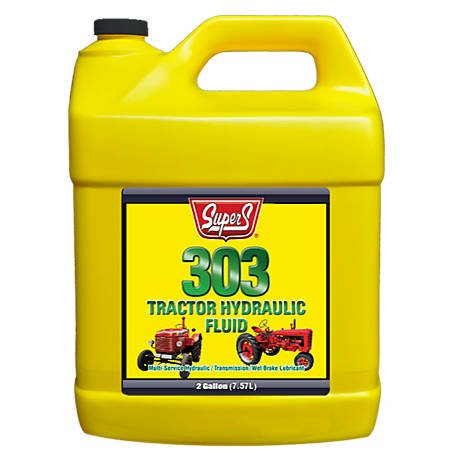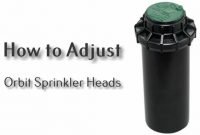If you are a farmer with a 303 tractor, you might have encountered 303 Hydraulic Oil. Before deciding to use, it’s vital to understand whether this oil suits your tractor’s hydraulic systems, including wet brakes and other machinery.
Being a farmer is not only taking care of the crops, but you also have to take care of your equipment. Therefore, you need to know which tractor hydraulic fluids you should use.
303 Hydraulic Oil
The tractor hydraulic fluid (THF) market has been filled with these types of oil for decades. These fluids are sold in attention-grabbing five-yellow gallons, which have been nicknamed “yellow buckets.” For farmers and equipment owners, the yellow buckets seem to be an alternative to the more expensive original equipment manufacturer (OEM) brand.

The 303 fluids attract farmers and equipment owners who are looking for a cut-cost solution. The 303 refers to John Deere’s JDM 303 hydraulic fluids. However, John Deere no longer uses JDM 303 because it was invented more than fifty years ago. The JDM 303 used sperm whale oil to meet the tractor’s specifications and other equipment fifty years ago.
Because of animal conservation, sperm whale oil is no longer used. Today’s manufacturer uses the oil to reference JDM 303, which is odd because John Deere no longer produces JDM 303. After all, the specifications of tractors and other equipment are evolving, so a new invention is needed.
The Effect of 303 Hydraulic Oil
The manufacturer claims this oil is best suited for older tractor models. However, the specifications of these older models, compatible with 303, comprise only about 2% of tractors worldwide. Utilizing 303 fluid in newer models, especially those with advanced hydraulic systems and wet brakes, could lead to complications.
This is because it has failed to meet the comprehensive requirements of modern tractors, as indicated on the product label. The first is that it can cause premature pump and equipment failure.
This is because the fluid cannot flow well over wide temperature ranges. The test of 303 fluids also shows that they are thickened if used for the long term. This can cause an erratic or sluggish hydraulic response. Using 303 fluids can also result in severe wear and ridging of gear parts.
The test shows that yellow bucket fluids mostly contain low-quality base oils and improperly balanced or inadequate additive systems. As a result, it cannot properly deliver the performance level required to protect equipment used in the field.
Read also: Bobcat Hydraulic Oil – Types, Ingredients
First-Hand Knowledge:
As a farmer who has maintained several tractors, I’ve observed that low-quality hydraulic oils can severely affect the machinery’s performance. It’s not just about the immediate cost savings; the long-term damage and increased maintenance costs far outweigh the initial benefits.
I once used this oil on an older tractor model, and within a few months, I noticed a significant drop in hydraulic response efficiency and increased wear on the gears.
Though 303 oils might be tempting if you are looking for a low cost, you must consider their effect on your tractor and other equipment and account for the maintenance costs of using them.
Personal Experience: “In one instance, replacing 303 fluid with a higher-quality, OEM-recommended oil improved the performance of my tractor’s hydraulic system, and I could avoid costly repairs. This experience highlights the importance of choosing the right hydraulic oil for different tractor models.”
| Aspect | 303 Hydraulic Oil | OEM Hydraulic Oil |
|---|---|---|
| Cost | Lower | Higher |
| Compatibility | Best for older models (2% of tractors) | Suitable for modern and older models |
| Performance | Poor over wide temperature ranges | Consistent performance |
| Long-Term Effects | Causes wear, sluggish response | Protects and enhances equipment |
| Base Oil Quality | Low-quality base oils | High-quality base oils |
| Additive Systems | Inadequate additive systems | Properly balanced additive systems |
OEM brand oils are more expensive than 303 oils, but protecting your equipment in the field is good. You can search for other oils, such as the equivalent.


